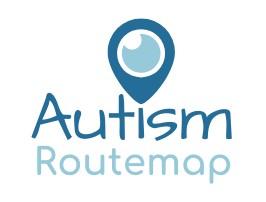Building bridges that cross the neurodiverse / neurotypical divide

In my last post, I discussed how the needs of neurodiverse / autistic people are not as obvious as a physical disability because they can’t be seen. These hidden challenges often lead to rifts in relationships because there isn’t a shared understanding of each other.
Common ground is built through discussions in which we actively seek to understand rather than judge. This is how we gain new perspectives and these up-dated viewpoints change lives both now and in the generations to come.
From my years of working with autistic / neurodiverse people, I’ve encountered certain themes which surface regularly. And it’s these, that I would like to share with you.
You may have heard the saying: “if you meet one autistic person, you’ve met one autistic person”. In other words, no two people are alike regardless of diagnosis. So, what follows is my two-cents worth to get the conversation started. It will not apply to everyone, so please don’t be offended by the content if it isn’t relevant to you. My hope is that it can be a basis for discussion and questions with a view to building bridges of understanding between people who experience the world differently. Here goes …
Sensory Issues
Many autistic / neurodiverse people have sensory sensitivities. We all know what it feels like to sit next to someone with bad breath or to be startled by a sudden loud noise. But what we probably don’t understand (as neurotypicals) is how it feels to experience this at an intense level – all the time.
I’ve had people tell me that the hum of their computer or fish tank in their living room is driving them crazy. One lady told me that she can’t go outside in her garden when the neighbours hang washing on the line because the smell of the fabric conditioner is sooo overwhelming. Another woman told how travelling on the London Underground is utterly awful because of the train vibrations.
What to do?
Understanding these issues, enables you to make adjustments in the home or to avoid places where these triggers are especially problematic. And failing this, try to be understanding when an autistic / neurodiverse person reacts in a way that seems out of proportion – they have probably just reached tipping point.
Social Events
Most neurotypicals look forward to social events or, at least enjoy them when they are there – especially if it’s with people they know and like. But many autistic / neurodiverse people dread these situations as they can be anxiety provoking and draining. Despite this, autistic / neurodiverse people often mask their discomfort and put on a good show for a while.
What to do?
Because this takes a lot of conscious effort and can be extremely tiring, one way to make it work is to agree to attend social events for shorter time-frames if you are a neurodiverse / neurotypical couple. And after social events, an autistic / neurodiverse person may well need some time and space to decompress. So, if they are not full of the joys of spring, don’t take it personally. It probably doesn’t have anything to do with you – the social pressure and masking takes its toll and it’s OK for a person to remove their mask when they get home.
Information Processing
Autistic / neurodiverse people often have variable processing abilities depending on how information is presented. So, whilst visual processing may be a huge strength, processing spoken information can often be an area of weakness.
What to do?
This means that an autistic / neurodiverse person may need more time to think about things before answering. This certainly applies in conflict situations where a pause may well be the best thing to ensure a successful resolution.
I hope you have enjoyed this post and if you have something to share about your experiences, please do tell us your views. You can connect with us on Facebook and Twitter.
In the next post, I’ll spill the beans on other issues which need shared understanding.
Til then,

Disclaimer
This blog post is for educational purposes and should not be taken as medical or therapeutic advice. If you need medical or therapeutic support, please consult your medical practitioner or therapist.
Linda empowers and equips people to communicate effectively, find freedom in their relationships and experience greater emotional well-being.
Whenever you’re ready, here are three ways I can help you:
- Grab a copy of: “Your guide to life after an adult autism diagnosis. Taking the next step into an empowered future!”
Use this guide to clarify how autism impacts you personally so you can:
- understand and clearly communicate your needs
- explain the diagnosis from your perspective
- take action to accommodate your needs and identify skills you want to develop
Click HERE to get your free copy
- Work with me directly
If you’re interested in working with me privately to fast track your progress in developing an emotionally healthy life and harmonious relationships, then I invite you to schedule a FREE call to discuss the options that are available.
Click HERE to book your call.
- Join our private Facebook group.
This is a place to connect with like-minded people to share challenges and solutions … and cheer each other on in your journey.
Click HERE to join

